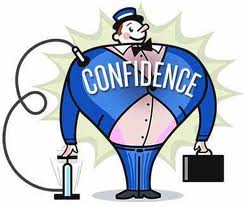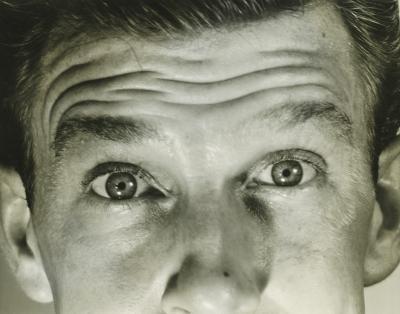Different for all of us.
March 12, 2013 | By Rachel Hankey |
What is confidence? It’s different for all of us.
 Some people wear it like a coat, covering what they perceive to be their less confident but true self in something more robust and appealing.
Some people wear it like a coat, covering what they perceive to be their less confident but true self in something more robust and appealing.
Other people try to muster something up from within themselves like an energy force that will propel them into doing what they need to do despite any reservations.
However it works for you, I find the application of it a fascinating concept. I once worked with a man in his thirties who was due to give a speech to an audience of hundreds. We’d spoken on the phone and had had one Skype public speaking session. He was determined to let me know he had no confidence at all and wanted to warn me I would probably be his biggest challenge. ‘Don’t worry’ I told him ‘I like a challenge.’
Due to his time constraints, our first meeting was in a pub. We arranged to meet for half an hour, simply to talk over what we’d already been through on the phone and Skype. ‘I just want you to meet me’, he’d said ‘so you can see how nervous I really am and what type of person I am.’
This client of mine worked in the city and regularly held meetings in pubs, restaurants and other social venues. I knew on this particular day, he was meeting me after meeting a group of his work colleagues. ‘It’s not a formal meeting as such’, he told me ‘we’ll just be by the bar. As soon as you arrive I’ll say my goodbyes to them and we can move to a quieter part of the pub’ he told me.
I arrived at the pub ten minutes early. I scanned the bar, seeking out my client, looking for the desperately shy and nervous man. I spotted him almost immediately, surrounded by a semi-circle of other suited people. Clearly though, he’d sent his gregarious twin brother to take the meeting for him.
I sat and watched as this ‘painfully shy’ man, held court, telling a story about a disastrous job interview. Putting his pint on the bar top, he used his hands and arms to demonstrate and he’d experienced. His eyes were alive. His facial expressions were theatrical and reinforce. His audience were completely engaged. They laughed in unison, whooped together and shook their heads with the incredulity that regurgitated stories often inspire. He noticed me, nodded his polite acknowledgement and shook hands goodbye with his colleagues.
We moved around the corner to a quieter table. ‘Great to meet you’ he said ‘but let me tell you, you’ve got your work cut out with me. I am SO nervous about this. I can’t give a speech to save my life!’.

I remember smiling. ‘Yes you can’, I said, ‘you just did!’ Sometimes you have a whole bank of skills under your belt. You just fail to recognise what’s there. Don’t underestimate what you can already do that might be transferable to something else. Long story short, the only thing my client needed was my help understanding how to transfer the skills he already had.
It might be all you need too.

 I’m often on the train. I actually enjoy train journeys simply because I get to indulge in one of my favourite past-times; people watching.
I’m often on the train. I actually enjoy train journeys simply because I get to indulge in one of my favourite past-times; people watching. ‘Well you weren’t with Pete!’ she asked, leaning forwards across the table. I assume she was scanning his face for clues. His eyebrows shot up and his forehead wrinkled. (This can be a sign of a liar caught in the act). He looked up to the right. ‘I was at work, I was going to meet Pete but I had to stay for a meeting, for God’s sake.’ Note this, right handed people usually look to the left to recall memories, and to the right when they are in the act of making something up.
‘Well you weren’t with Pete!’ she asked, leaning forwards across the table. I assume she was scanning his face for clues. His eyebrows shot up and his forehead wrinkled. (This can be a sign of a liar caught in the act). He looked up to the right. ‘I was at work, I was going to meet Pete but I had to stay for a meeting, for God’s sake.’ Note this, right handed people usually look to the left to recall memories, and to the right when they are in the act of making something up. Unfortunately, I reached my destination not long afterwards and I will never know if conservation was made, or numbers were swapped.
Unfortunately, I reached my destination not long afterwards and I will never know if conservation was made, or numbers were swapped.






